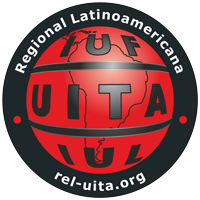Gerardo Iglesias
12 | 09 | 2023

Photos: Gerardo Iglesias
The Meeting of the Agricultural Workers Trade Group Committee is being held in the city of Eastbourne, on the southern coast of England. On September 12 and 13, representatives from Asia, Africa, Europe, Latin America and the Caribbean are gathering to examine the context of enormous difficulties and challenges facing the global agrifood system and the actions of labor organizations in the sector.
The effects of climate change, the persistent rural migration to the cities, the impacts of extractive agriculture, the concentration and increasing foreign ownership of land, and the disappearance of the rural world are all issues on the meeting’s agenda and the subject of the discussions held over the course of two days of work.
The symptoms of the devastating collapse of the dominant productive matrix force us to question the consequences of the prevailing model, in which toxic agrochemicals have become the pests, technological advances have had a negative impact on food quality, and famine has continued to thrive despite the many promises and scientific assurances.
Then there is the situation of rural laborers, both men and women, plunged into vulnerability and exclusion by authoritarian enclaves of agroindustrial production, victims of complex scenarios where precarious work is touted as the basis for growth.
Either major and urgent changes are made or we will inevitably face a catastrophic outcome.
Much needs to be done and many actions need to be taken to build a different model in which collective wellbeing will become the highest priority and the ultimate goal.










